Projects
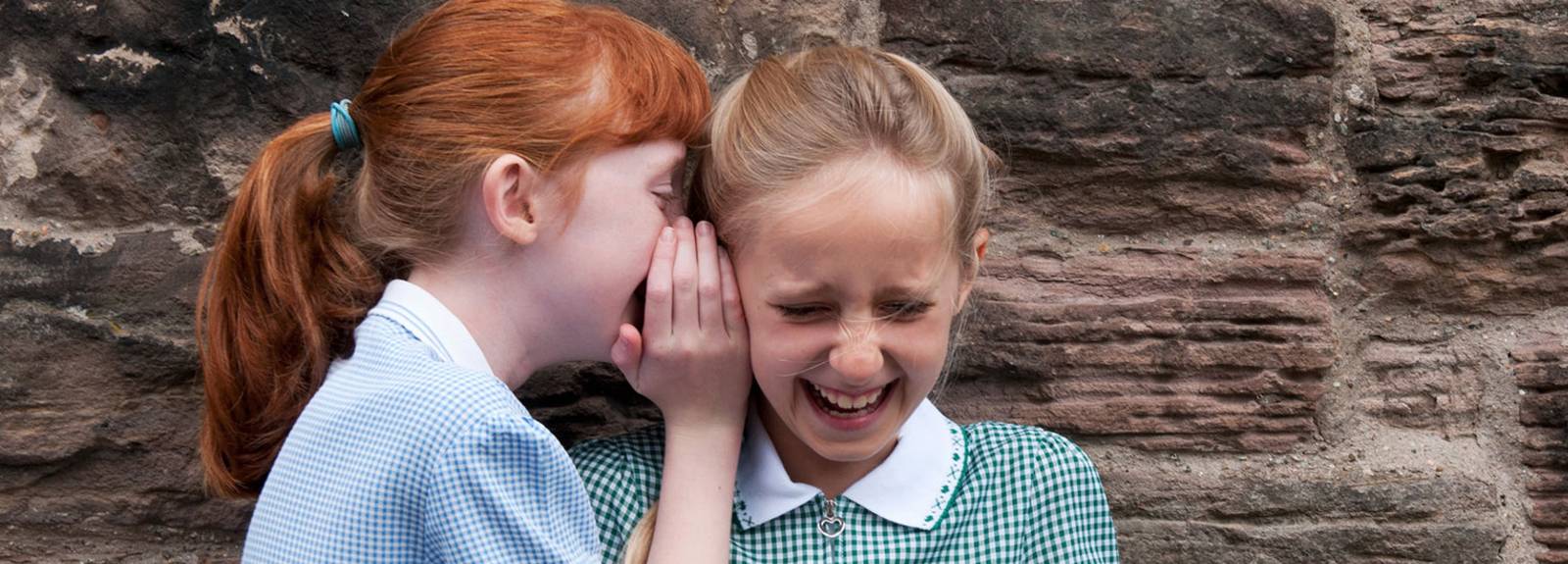

CSE is partnering with the National Children’s Bureau to evaluate the impact of the Limavady Shared Education Partnership. The project employs an Outcomes Based Accountability (OBA) methodology to determine and assess shared education outcomes in relation to improving the educational outcomes of children and young people, their attitudes and behaviours, and wider community effect, including the impact the shared campus has on delivering the societal benefits for the Limavady community. In addition, the project aims to quip the schools with the skill set to continue embedding OBA, using it as a mechanism to enable the mainstreaming of shared education and developing goods relations in the local community. The project runs for five years and will complete in 2028. The CSE lead is Professor Tony Gallagher, and he is working with Dr Gavin Duffy, Professor Joanne Hughes, Dr Rebecca Loader and Dr Gareth Robinson to deliver. The work is funded by the Department of Education.

This project explores innovative youth sector inspired approaches to the delivery of shared education. Working in partnership with the Education Authority, the research adopts survey, focus group and semi-structured interviews to examine the implementation and impact of more informal approaches to schools working in partnership, particularly as they seek to address more controversial issues through shared education. The research is funded through EU Peace Funding and runs for one year. Professor Joanne Hughes and Dr Rebecca Loader are the CSE leads on this project.

This mixed methods research project aims to identify and analyse potential links between integrated education and social attitudes and associated behaviours of children and young people up to the age of 25. The research is led by Dr James Nelson and is undertaken in partnership with colleagues from School of Psychology at Queen’s. The research is funded by the Integrated Education Fund and will complete in January 2025.

This project employs qualitative and quantitative methods to explore the process of transformation from ‘separate’ to integrated school, with a view to examining barriers and enablers to transformation and the current policy process. The research includes case study schools that are at different stages on their transformation journey. It is undertaken by Professor Joanne Hughes and Dr Rebecca Loader and funded by the Integrated Education Fund. It will complete in 2024.

Prof Joanne Hughes (PI), Dr Ian Cantley and Dr Rebecca Loader have been awarded a Nuffield Foundation Grant to undertake research that aims to progress the debate on academic selection in NI. Beginning on 1 April 2024 and running for 18 months, the research adopts innovative deliberative polling methodology to advance the currently stymied debate on academic selection. As a condition of the award, the team has secured agreement in principle participation from the Permanent Secretary for education, political representatives from all parties (with one exception), and a range of other educational stakeholders, including some grammar school principals.

Professor Tony Gallagher, Dr Gavin Duffy and Dr Lesley Emerson are working on an Erasmus+ project that looks at supporting teachers in pedagogies for teaching controversial issues.
Running over three years (2021-2024), the project is led by University College Copenhagen KP and involves the Open University of Cyprus, Oslo Met Norway, the Adyan Foundation Lebanon and Queen's. More information abotu the project's aims and methodology is available here.
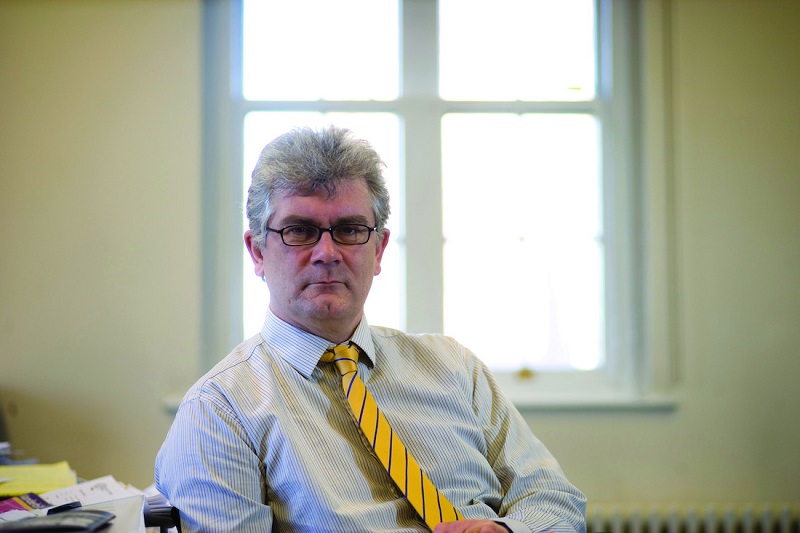
Professor Tony Gallagher is a member an expert group at the European Wergeland Centre, Norway, that is involved in developing a programme to support teachers in tackling violent extremism, particularly right-wing extremism.
This project, which runs from 2021 to 2024, makes extensive use of methodologies and pedagogical instruments developed by the Council of Europe to deal with controversial issues.
For more information, visit the DEMRED page at the European Wergeland Centre website.

The Centre for Shared Education is leading a study to investigate the views and experiences of education among families from minority ethnic and migrant backgrounds in Northern Ireland.
Funded by the Nuffield Foundation, the main part of the study involves interviews with approximately 60 children (ages 9-14) and their parents/carers across areas of Northern to explore issues including school admissions, the curriculum experiences of day-to-day school life. The research also comprises analyses of educational data and policy, and interviews with education officials, teachers, and statutory and voluntary sector organisations to examine current provision. The research team’s work is guided by advisory groups of young people from minority ethnic backgrounds and representatives of organisations working with minority ethnic and migrant groups.
This study will contribute significantly to our understanding of education among minority ethnic groups in Northern Ireland, encompassing the diverse experiences of newcomer families and those from established minority communities. The outputs will include recommendations to enhance minority ethnic families’ educational experiences and outcomes and to address inequalities and/or gaps in provision revealed by the research.

The Centre for Shared Education is collaborating with partners in Dublin City University, Galway University and Stranmillis University College to deliver a project on cultural responsivity in teacher education on the island of Ireland.
The short-term aim of the project is to deconstruct the challenges and opportunities for the preparation of Initial Teacher Education (ITE) students on the island of Ireland to teach in culturally diverse settings. The medium-term aim of the project is to co-design an open access MOOC and ECTS module on culturally responsive education for ITE and In-service Teacher Education Providers. The longterm aim of the project is through the provision of high quality training resources for ITE and In-service Teacher Education Programmes, the enhanced inclusion of students with a migration background across the continuum of education. This project is funded by SCoTENS.

Dr Ian Cantley is currently working on a monograph entitled 'The philosophical limitations of educational assessment: Implications for academic selection', which is due to be published by Palgrave Macmillan in early 2024.
In this book, Dr Cantley uses philosophical analysis to argue that capability is a relational rather than an innate characteristic of an individual, and that there is irreducible uncertainty associated with unmeasured capabilities. The implications of such a conceptualisation of capability for the interpretation of test scores in general are then elucidated before considering its connotations for academic selection. It is suggested that the practice of interpreting and applying validity and reliability as unquestioned criteria for the quality of an educational assessment incurs logical and moral problems that a conscientious educator cannot ignore. The gravity of this moral transgression depends on the purpose and significance of the assessment and, in the case of high stakes tests used for academic selection purposes, it is argued that, not only can the moral wrong be highly significant, but better solutions are within reach.

The Centre for Shared Education is working with colleagues in Dublin City University to explore the use of Online Lesson Study (OLS) as a vehicle for collaborative professional learning between primary teachers who are involved in an existing Shared Education partnership.
This project is located in the area of teacher professional development practice and research, with potential benefits for participating teachers and schools in sharing and improving practice; and for researchers in adding to what is known about effective approaches to foster teacher collaboration within Shared Education and emerging features of OLS. The project brings together teachers involved in inter-school Shared Education initiatives across Northern Ireland and the six border counties in the Republic of Ireland. OLS is a professional model where a group of teachers collaborate to research, plan, teach and observe a research lesson with a group of learners, facilitated by an external expert known as a Knowledgeable Other, who guides and extends the teachers’ learning. This project is funded by SCoTENS.

The Centre for Shared Education is working with the Education Authority (EA) to provide two teacher training modules for practitioners working in Northern Ireland schools.
These modules are part of the EA’s teacher professional learning programme, and aim to increase the effectiveness of shared education in the classroom. The two modules are Diversity in the Classroom and Making Your Shared Education Partnership Work. The diversity module provides participants with a wide range of practical strategies, resources and useful frameworks for teaching about and dealing with diversity in the classroom. With the shared education module, the Centre provides teachers with a practical guide to the potential of shared education for school improvement and promoting good relations within the school and the wider community.
Follow the link here for a good overview of shared education and how the Centre for Shared Education is part of a collaboration to mainstream shared education in Northern Ireland schools.
The Centre for Shared Education has completed a 5-year study ‘Delivering Social Change (DSC) Signature Project for Shared Education (SESP)’ from 2014 to 2019.
This work was funded by The Executive Office, Atlantic Philanthropies and the Department of Education, with an overall aim to scale up the level of sharing throughout schools in Northern Ireland by providing financial support to improve the education and reconciliation outcomes in schools working collaboratively. Over the course of the five years, a series of qualitative case studies with teachers and pupils involved in shared education was undertaken, with the final report published in 2020.
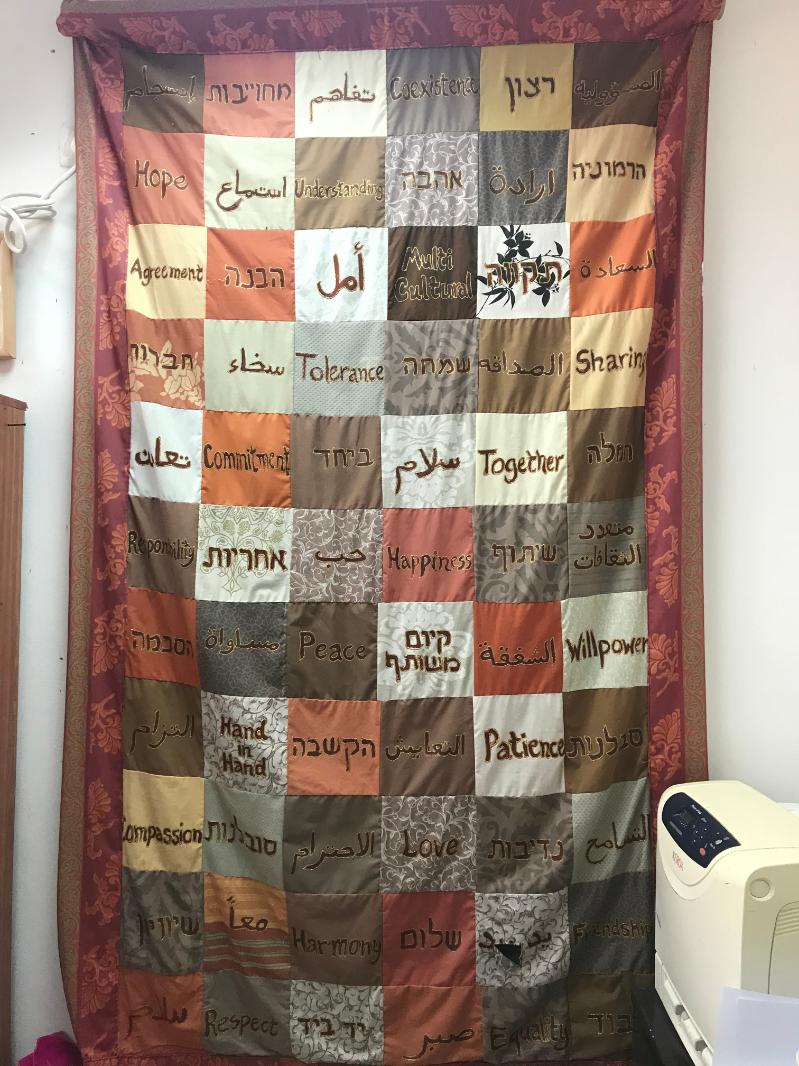
The Centre for Shared Education is currently completing a qualitative study examining the relationships between Jewish and Arab teachers in Israel and how these relationships develop in a shared space.
The Centre is undertaking this work with support from Abraham Initiatives, a non-profit NGO whose mission is to strive for full and equal citizenship and complete equality of social and political rights for Israel’s Jewish and Arab citizens. Abraham Initiatives assists teachers with training for and implementation of shared learning- a similar programme to shared education in Northern Ireland.
The study aims to compare results from interviews with teachers in Israel with a previous study completed by the Centre for Shared Education in Northern Ireland.

The Centre for Shared Education, together with the Centre for Identity and Intergroup Relations in the School of Psychology at Queen’s, has been appointed to evaluate the Collaboration Through Sharing in Education (CASE) programme.
Managed by the Education Authority and Léargas as part of the Peace IV initiative, this programme supports new school collaborations in Northern Ireland and the border counties in the Republic of Ireland. To evaluate the implementation and impact of CASE, the team will conduct a large-scale survey with pupils and a series of case studies with staff and other stakeholders in participating schools. (Funded by the Education Authority.)
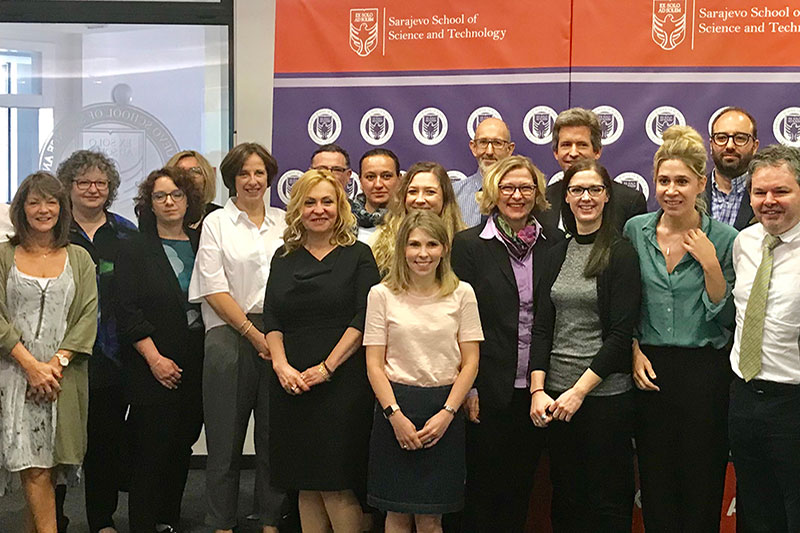
The Centre for Shared Education is leading an ESRC-funded project to develop a network of stakeholders to advance shared education in Bosnia and Herzegovina, Croatia and the Republic of Macedonia.
This project brings together academics, practitioners, NGOs and policymakers from these countries, and Northern Ireland, to develop contextually-appropriate models of shared education. The project also aims to increase capacity within each jurisdiction to implement and evaluate shared education initiatives. It builds on previous work by Professor Joanne Hughes and colleagues, in collaboration with local NGOs, to develop shared education initiatives in Macedonia. (Funded by the Economic and Social Research Council.)

The CSE is working with the Education Authority to examine the impact of the shared education signature project, introduced in 2015. For information see here
The first phase of this study comprises survey research with pupils to assess the effects of shared education on reconciliation and (soft) educational outcomes. The second phase complements this with in-depth case studies of practice in six school partnerships, exploring how collaboration can generate educational and social improvement. (Funded by Atlantic Philanthropies.)

Colleagues from the Centre are involved in the development of three shared education initiatives in Israel.
The first of these is led by Professor Tony Gallagher, in collaboration with the Centre for Educational Technology in Tel Aviv, and supports partnerships of Jewish, Arab and Bedouin schools in Ramle and the Negev. These partnerships focus on the joint teaching of English, citizenship, and maths and science, and build capacity among teachers to deliver shared education. Professor Gallagher also contributes to a project that brings together school principals from Jerusalem to share learning and experience.
The third initiative involves collaboration between Centre colleagues, led by Professor Joanne Hughes, and the Abraham Fund, an Israeli NGO which has developed a shared education initiative. This pairs an Arab and a Jewish school to deliver a series of 8-10 shared classes on a curriculum topic identified by both schools. All classes are taught by both Arab and Jewish teachers. In 2018-19, 15 pairs of schools are participating in the project.
In the USA, Professor Tony Gallagher is leading work with Loyola Marymount University and The Education Success Project (TESP) to promote collaboration in the Los Angeles Unified School District. This programme seeks to develop networks of charter schools, public schools and private Catholic schools to promote collaboration, school improvement and enhanced achievement among pupils.

Our international research programme supports the development of shared education models outside Northern Ireland, including in contexts including the Republic of Macedonia, Israel and Cyprus. This research has two aims.
First, it explores the potential enablers and barriers to implementing shared education within new national settings, focusing particularly on the social and political context. Second, it analyses the implementation and impact of shared education in countries where programmes have been introduced. (Funded by Atlantic Philanthropies.)
This 5-year study explores young people’s attitudes and experiences of intergroup contact across Northern Ireland. Surveys were conducted from 2011 until 2015 in approximately 70 post-primary schools.
The same cohort of pupils was surveyed annually from the age of 12 (year 8) until age 16 (year 12).
As one of the few longitudinal studies of intergroup contact in the UK, this research will shed new light on intergroup relationships in divided societies. (Funded by Atlantic Philanthropies.)
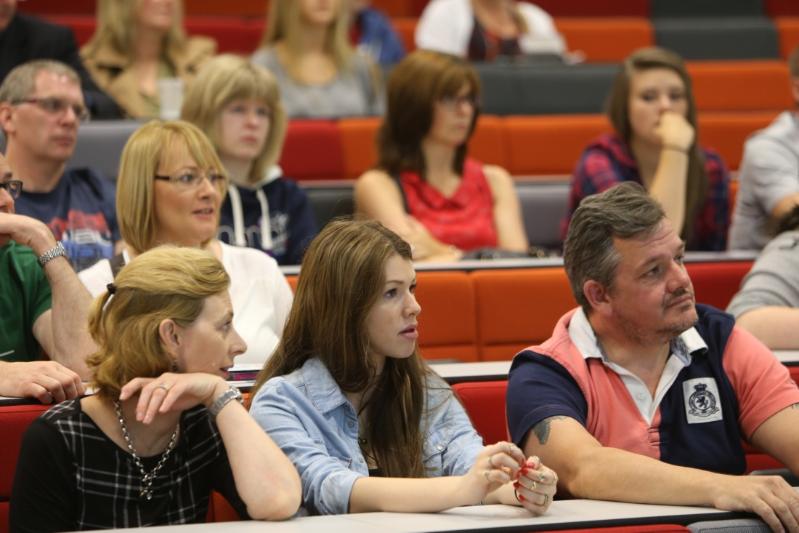
Researchers from CSE and the Centre for Evidence and Social Innovation (CESI) are conducting a systematic review of evidence on the effectiveness of school collaboration. This will assess the impact of inter-school collaboration on academic and social outcomes, ascertain whether effects differ according to the type of collaboration, and identify key characteristics that optimise effectiveness.
As the first systematic review on this topic, this study will provide the authoritative source of evidence. (Funded by Atlantic Philanthropies.)

Staff from the Centre for Shared Education have delivered two training modules for post-primary teachers as part of the Education Authority’s School Development Service.
- Maximising Collaboration and Intergroup Contact: This module explores effective collaboration and considers the logistics and challenges that arise when schools work together. Participants explore the principles of contact theory and focus on best practice at classroom level.
- Teaching and Dealing with Controversial and Sensitive Issues: This module explores the nature of controversial issues in Northern Ireland and provides research-based, practical strategies for meaningful and engaging exploration of such topics in the classroom.
In June and July 2018, researchers from the Centre also led sessions as part of the Education for Transformation International Summer School at Queen’s University Belfast.